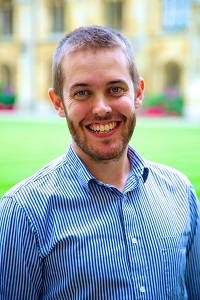For our new column, Ask an Educator, we turn to educators, whether teachers, tutors, or principals, to answer frequently asked questions from parents. To send in your question, email jessicasuotmaa@beijing-kids.com.
This week, our question is:
“What is project-based learning, and why does everyone want it?”
Answering for us is Julian Fisher, co-founder of TSL, and previous Head of Art at Harrow International School Beijing.
Project Based Learning (PBL), is a widely used term that is often applied incorrectly when perhaps “group work” or “project” would be more accurate. True PBL revolves around a key question or problem, usually chosen by the students that is applicable to their lives or interests, which must be answered through research, innovation, feedback, and the creation of a “public product”. Whether making a documentary or publishing a book, each student in the project has a different role (assigned democratically within the student group), allowing learners from varying ages and abilities to have different responsibilities while benefiting equally from the experience.
What may appear simple–giving students a question, telling them to run off and do some research and then come back with something they can share publicly–actually requires a huge amount of behind-the-scenes planning and preparation. Best with more than one teacher in the classroom, teachers implementing PBL have to ensure that they are inputting useful background information, nudging students towards key areas of research, while verifying that what is produced is the result of hard work, ingenuity, and effective collaboration–not simply a step-by-step journey fed by teachers, or a hastily composed, sloppy product produced by just a few of the students from the group.

As to why everyone wants it, I think that when PBL is done well, it is one of the most powerful learning tools on the planet! Students nowadays grow up in a very strange time: the answer to everything is easily accessible on their smart phones and yet education systems around the world seem increasingly fixated on testing the memorization of this information to gauge success. PBL is important because it does things which not only benefit true learning, but also provides lifelong skills. This means:
- Students research information more deeply because its accuracy is vital to the success of their projects. PBL is also a really great way to introduce ideas about the reliability of different sources. Students examine received knowledge or assumptions, rather than just accepting them as the truth. I spent yesterday with five students testing six different ways of making fire and discovered that what was perceived as the best way, rubbing sticks together, was actually extremely difficult and dependent upon so many more variables than the movies would have you believe!
- Effective collaboration requires effective communication. Much of the teachers’ involvement revolves around getting more talkative students to become better listeners/motivators (one of my most confident students must say “what do you think?” and ask a follow-up question at least four times within the group in each class), while finding strategies for quieter or less confident students to contribute meaningfully.
- In a more traditional school project (think, making a model volcano), the strongest students will do well and the less competent or less hard-working students will do worse. I’m not sure if this is a particularly valuable lesson for life! In PBL, students fail, reflect as a group upon failure, then improve together.
- The “Public Product” is something that is the result of a student group working for a long time. Everything these days is so fast paced that it is easy to fixate on reaching the destination as quickly as possible rather than the journey. When students produce something meaningful that they know was the result of considerable effort, they take more pride in it than when they spent an hour doing something for homework. They also retain far more of what they learned. Thinking long term, universities will always look more favorably upon a student who can say “I wrote a play” or “I co-founded a charity.”
This summer, TSL will be running a range of different Project-Based Learning activities from their Shunyi centre. If your child is interested in attending, please contact julian@tslbritain.com for more information.




